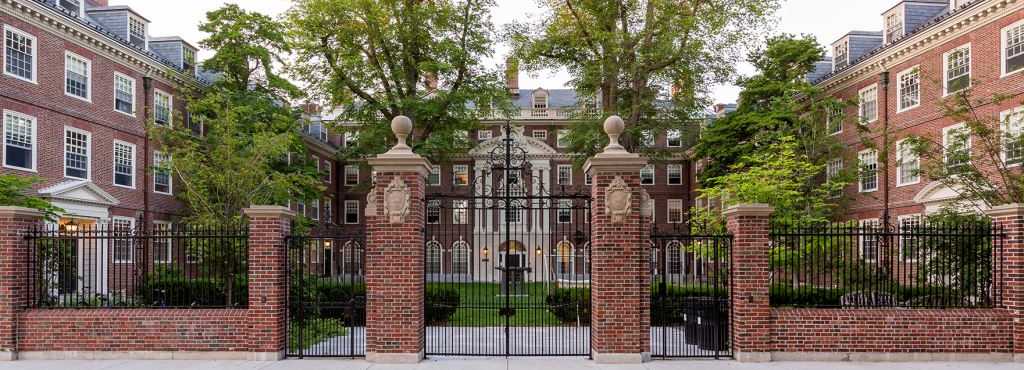30 Things to Expect Your Senior Year of High School
Three years of high school have made you an expert on all things secondary education, but you may not know what to expect on that first day of senior year. Luckily, we’ve compiled a list for you.
Updated: Wednesday, November 6, 2024

By Victoria, IvyWise College Admissions Counselor
Whether you’re working with your school-based college counselor, an independent college admissions consultant, or both during your college admissions journey, there’s one thing that you can’t afford to do, and that’s miss opportunities to tap the knowledge and resources of the staff and teachers at your school.
I have worked as both an independent college counselor and as a college counselor at an independent high school, so I’m in a unique position to see that students can benefit the most when fully utilizing both professionals from their school and outside counselors or tutors.
Time and time again I have worked with students on both sides who seem to think that since they are using an independent counselor, they don’t have to meet with their college counselor or guidance counselor at school. They pay less attention to workshops offered by the school and they spend less time seeking out advice from their school counselor or teachers during the process. Despite the many benefits of working with an independent counselor, such as my wonderfully skilled colleagues at IvyWise, not utilizing the professionals at one’s school is a big mistake!
An independent counselor often has more one-on-one time to devote to students. They can spend extra hours getting to know a student early on, which helps in guiding them through selecting extracurriculars and challenging themselves with academic experiences that eventually enhance their application. Independent counselors can often spend more time guiding a student through their application essays and the applications themselves. But, the one thing they do not get to do is be a part of a student’s school environment, and there are several aspects of the school environment that directly play into students’ college process.
As part of a student’s college application their school counselor will write a letter of recommendation and fill out the school report. These two things give an overall picture of a student’s academic work in the context of their high school, and that is how admissions officers will accurately evaluate how strong the rigor of a student’s program is and how well they have done in that rigor. Since colleges and universities evaluate applicants in the context of their school environment and expect students to take advantage of and do well in what was offered in their high school, this piece of a student’s application is incredibly important to understanding where they stand academically.
Additionally, a counselor can explain a student’s background, their story, any personal or academic challenges they have overcome, or just their general day to day attitude in their recommendation letter — all of this rounds out the story the student shares through their side of the application.
An independent counselor cannot do any of these things as they are not associated with the student’s high school and thus cannot fill out a secondary school report for them, nor write a letter of recommendation. This is why it is incredibly important that you get to know your counselor at school — so that they understand your story and can describe who you are to colleges and universities.
Additionally, school counselors are in the unique position of understanding how students at that school have fared at various colleges and universities over the years. It is one thing to understand the overall profiles of the types of students who are admitted to a given college or university, but it is another to have access to the admission decisions that were made for various students over the course of years from a high school. And with more and more schools using Naviance, counselors have even faster and more convenient access to this information.
I always ask high school students I am counseling individually to get a read on their chances at colleges and universities from their school counselor, because in addition to their knowledge of what may have happened in previous years, sometimes a high school may have a really strong relationship with a given college, unbeknownst to the student.
A school counselor’s perspective will always help students and outside counselors better understand how the student’s application will look contextually, which helps everyone understand what the student’s chances at a college may be. This is the best way to build a well-balanced list of colleges with realistic expectations.
Another little known fact is that sometimes a school counselor is able to go to bat for a student at their top choice schools. This is not always possible, but some colleges will accept a call from counselor to discuss students who are applying from their high school and they can clarify some things for the admissions representatives.
Typically a counselor wouldn’t be able to get someone in who wasn’t already somewhat competitive, but if a school was unsure of just how much of a top choice they really were for an applicant, that information might be very helpful to the college. A school counselor could also help to explain any questions a college might have with a student’s profile or application. Why not take advantage of any extra boost you could? So get to know your counselor, talk about your applications and the schools in which you are interested. Certainly tell your counselor what your top choices are!
Besides fully utilizing school counselors, students should strive to form solid relationships with their teachers. Students will likely choose two teachers, most often from their junior or senior year of high school, to write them a letter of recommendation. They, too, will comment on student’s academic work, but what colleges want to see from them is what kind of student and person they were in their class, both in the classroom and on assignments, papers, or projects. Colleges aren’t just interested in the grade a student got in a class – they want to know what type of student they will be on the campus. Do they contribute to class discussion? Do they collaborate well with others on projects? Are they a strong analytical thinker as evidenced by their writing?
In addition to discussing a student’s strengths in the classroom and in their work for class, teachers can also comment on personal strengths or weaknesses like character, resilience, attitude, etc. The better they know a student outside of class, the easier it may be to speak to all of the above facets. Getting strong letters of recommendations from teachers is just as important as a strong letter of recommendation from a counselor. So don’t be afraid to seek teachers out before or after school. Talk to them about your interests, your questions from class, and your application process. The better they know you the more they can help!
Independent counselors like myself and my colleagues at IvyWise offer a plethora of knowledge and expertise in college admissions. We can often offer students more one-on-one time and guidance than a school counselor may be able to, but students should avail themselves of their school counselor’s support, advice, and expertise, as well. Students also benefit from getting to know their teachers on a different level. Working with an independent counselor is extremely beneficial, but don’t forget to take advantage of the knowledge and expertise of the wonderful professionals in your high school, too!
If you’re interested in learning more about IvyWise’s college admission counseling services, contact us today.

Most rising seniors have a lot on their to-do lists in order to prepare for the college application process this fall. Students who get a jumpstart on the process before school is back in session and are often at a major advantage because they’re able to make the most of senior year and keep stress at bay.

As more families consider the ROI of a college education, the value of a liberal arts education has been a hot topic. With many STEM degrees and programs topping lists of highest-paying majors and best college ROI, many have waged a war on the liberal arts. But let’s not dismiss the liberal arts so fast.

Harvard is one of the most popular first-choice colleges for students, and it’s also one of the most competitive. In fact, in the latest admissions cycle, just 3.41% of applicants were offered a seat in the first-year Class of 2027.
Given this competitive admissions rate, some very talented students are going to find themselves on Harvard’s waitlist. While most applicants have a general idea of what a waitlisted outcome means, few understand how waitlists really work and what they can do to boost their odds of admission, which is what we’re going to explore here: